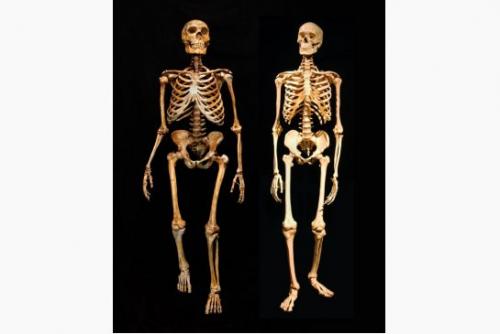Maintaining Your Bones for Longevity

Our bones are our framework. They hold us up. They allow us to move. Their health is essential to our well-being and how we age.
So it can be discouraging and even frightening when you’re doing all the ‘right’ things and still experiencing bone loss. And it’s important to understand there are a myriad of factors that can contribute to bone loss.
I’m actually not too concerned about my clients having inadequate levels and intake of calcium. This may surprise you, but low calcium intake is NOT usually why you have osteopenia or osteoporosis, even though that’s been the party line for a long time.
You’ve probably heard about the need for weight bearing exercise and having adequate levels of Vitamin D (blood levels at a minimum of 50 and preferably closer to 90) to keep calcium in the bones. These are both true and something to strive for but there are additional factors to consider, especially if you’re maintaining adequate vitamin D levels, working out and still experiencing bone loss. These are:
- Inadequate Vitamin K2 levels
- Early Menopause/menopause without estrogen replacement-hormone therapy (HT)
- Years of taking birth control pills.
- Inflammation running in the background (Rheumatoid Arthritis, Gut dysfunction)
- Medications such as Statins and Bisphosphates (given to prevent osteoporosis)
- Vitamin K2 is essential for keeping calcium in our bones and preventing it from roaming around and being deposited into our soft tissue. Supplementing with K2 can be very helpful but we may have discovered something even better, called GG which is a precursor to vitamin K2 (read more about this extract further on).
- HT (hormone therapy) during early menopause and in later-post menopausal years helps to retain bone, preventing osteopenia and osteoporosis in women. Up to 20 percent of bone loss occurs in women in their first five years of menopause. So during the first 5 years of menopause is when a woman might benefit the most from hormone therapy. Therapy after the five year mark can also be helpful.
According to Dr. Thacker of the prestigious Cleveland Clinic, there is no limit to the length time of HT. HT only helps the bone while one is taking it. Studies have shown that hormone replacement in women who’ve experienced menopause under the age of 45 due to hysterectomy or otherwise, has played a significant role in preventing cardiovascular disease, osteoporosis and can improve a women’s quality of life and hormone replacement can continue to play a role later in life as well.
Note: There is a controversial history of hormone replacement therapy as a result of the 15 year WHI study which was published in 2002. Many physicians and women continue to be hesitant and adverse to hormone replacement therapy. It’s important to understand the nuances of this study, the type of hormones used, age of participants, etc. The study results have been further reviewed, resulting in different interpretations and reporting. Here’s a link to a report published by the NIH reviewing the findings of this historic study pointing out the limitations and flaws of the study and the conclusions drawn and reported. Here’s a LINK to the 2017 position on hormone therapy from The North American Menopause society.
Is hormone therapy recommended for all women? No, it needs to be evaluated on an individual basis. For some women, hormone therapy may be contraindicated if they have been diagnosed with an estrogen driven cancer.
- Birth Control Pills: Birth control pills basically stop the cycling of your hormones by preventing the natural increase and surge of estrogen leading up to ovulation. While on the pill, estrogen levels are flat lined to a low level. This means that long term use of the pill could contribute to bone loss as it’s estrogen that helps to keep calcium in our bones.
- Addressing underlying inflammation: Just calming the body down, reducing cortisol levels and inflammatory markers can have an effect on bone density. It’s an important yet often overlooked factor. If you have an autoimmune disease or a digestive issue that’s running in the background, both of these can contribute to bone loss. Taking steroids as a means to reduce inflammation, also compromises bone health. It can be quite astounding to watch what happens to bone density when gut issues are resolved and autoimmune disease is dampened.
- Both statins and bisphophates decrease the production of something very important called GG (short for geranylgeraniol) which is essential to make adequate amounts of Vitamin K and keeping calcium in our bones and out of our tissues. Calcium that wanders into our tissues can cause kidney stones, gallstones, HBP, atherosclerosis, osteopenia and eventually osteoporosis. That’s pretty important.
We naturally produce less GG as we age. Statins and, ironically, the drug that’s prescribed to prevent osteoporosis, both lower GG production even more. So if you’re on a statin, I highly recommend supplementing with GG. It has the potential of preventing many things as we age. (See my post here on all the benefits of GG here)
Preventing and turning around osteopenia and osteoporosis is multifaceted which is why a Functional Medicine, root cause approach is important. It can cause injuries and shorten lives. It’s not a condition to be ignored.